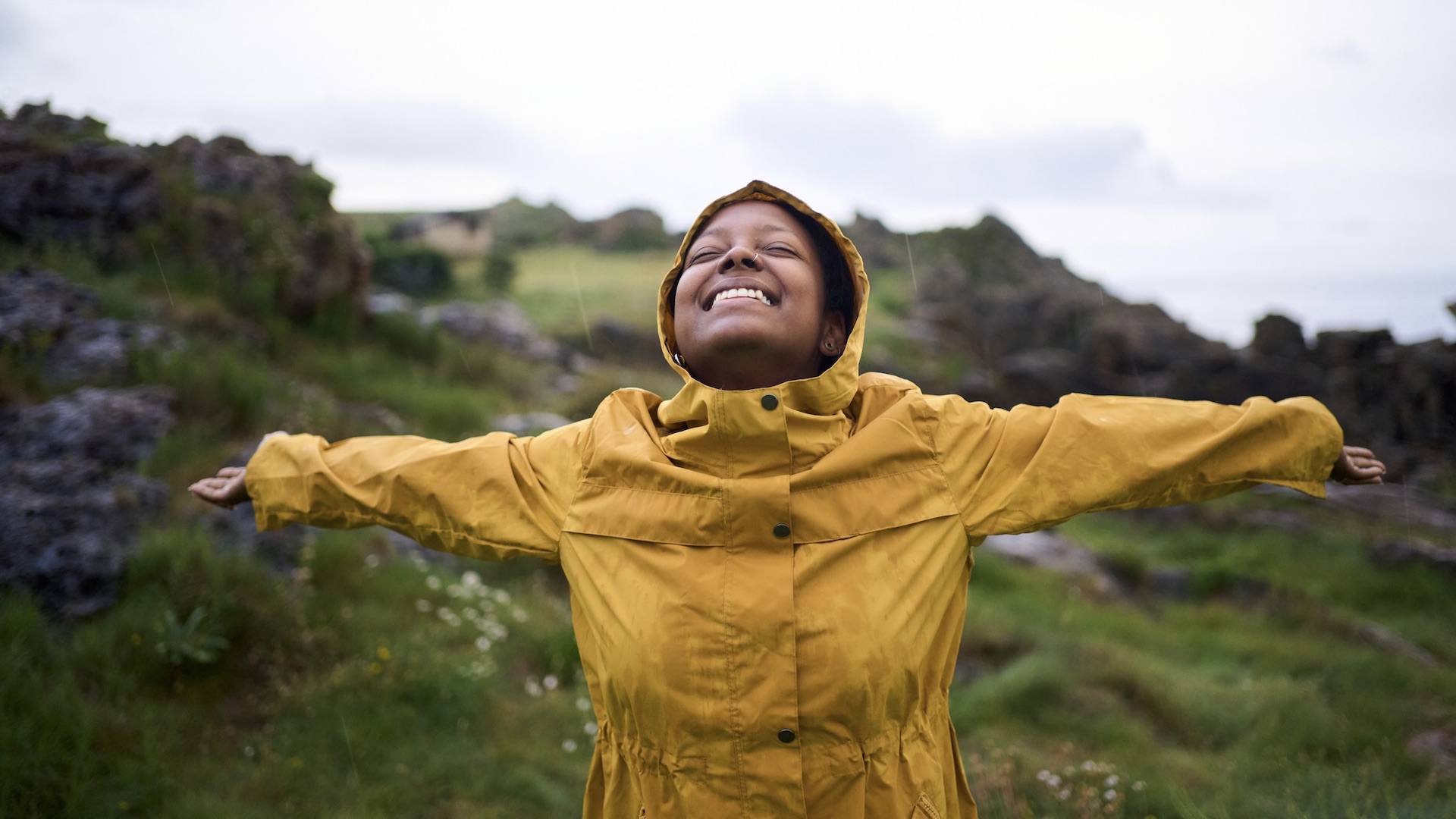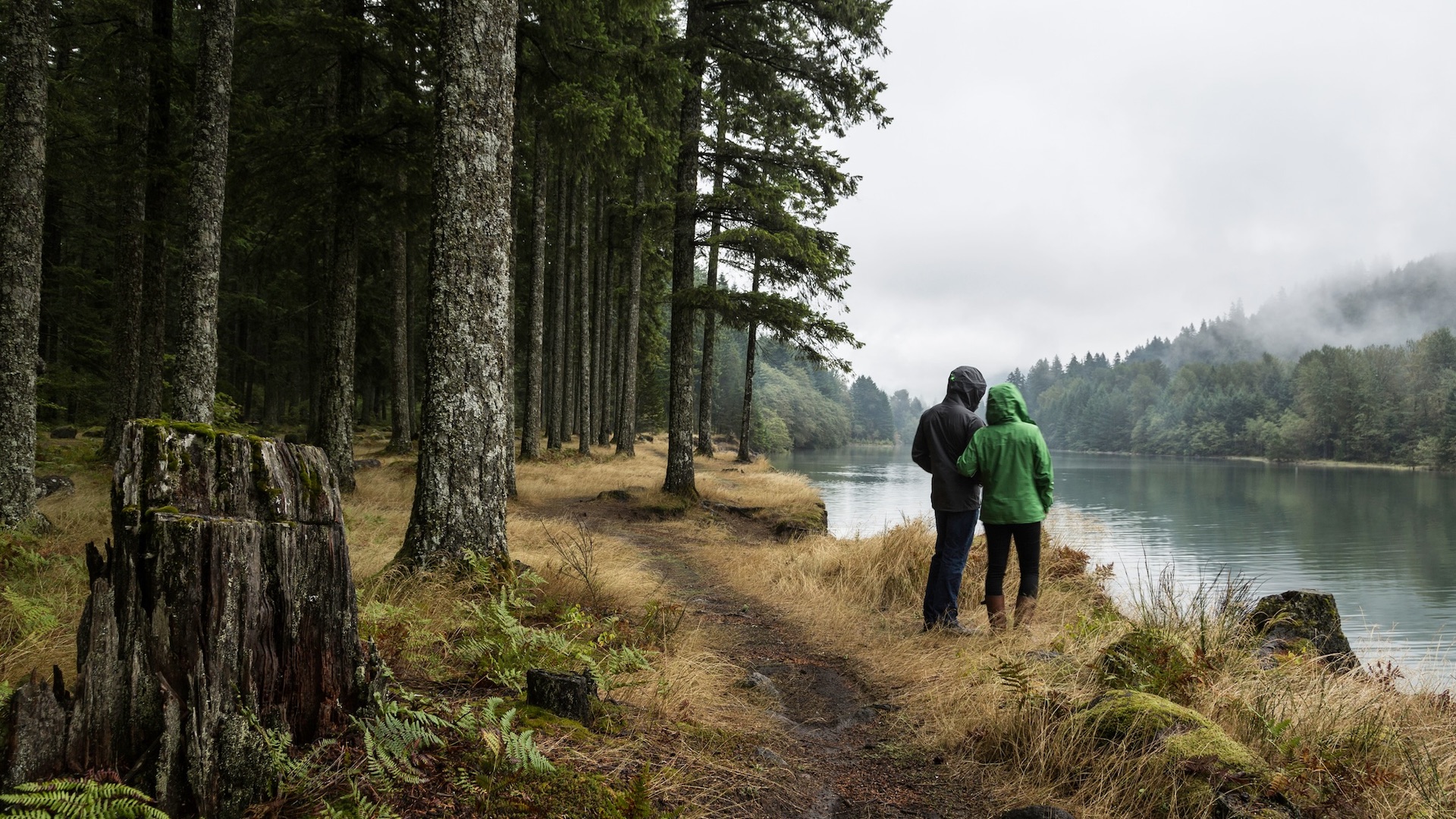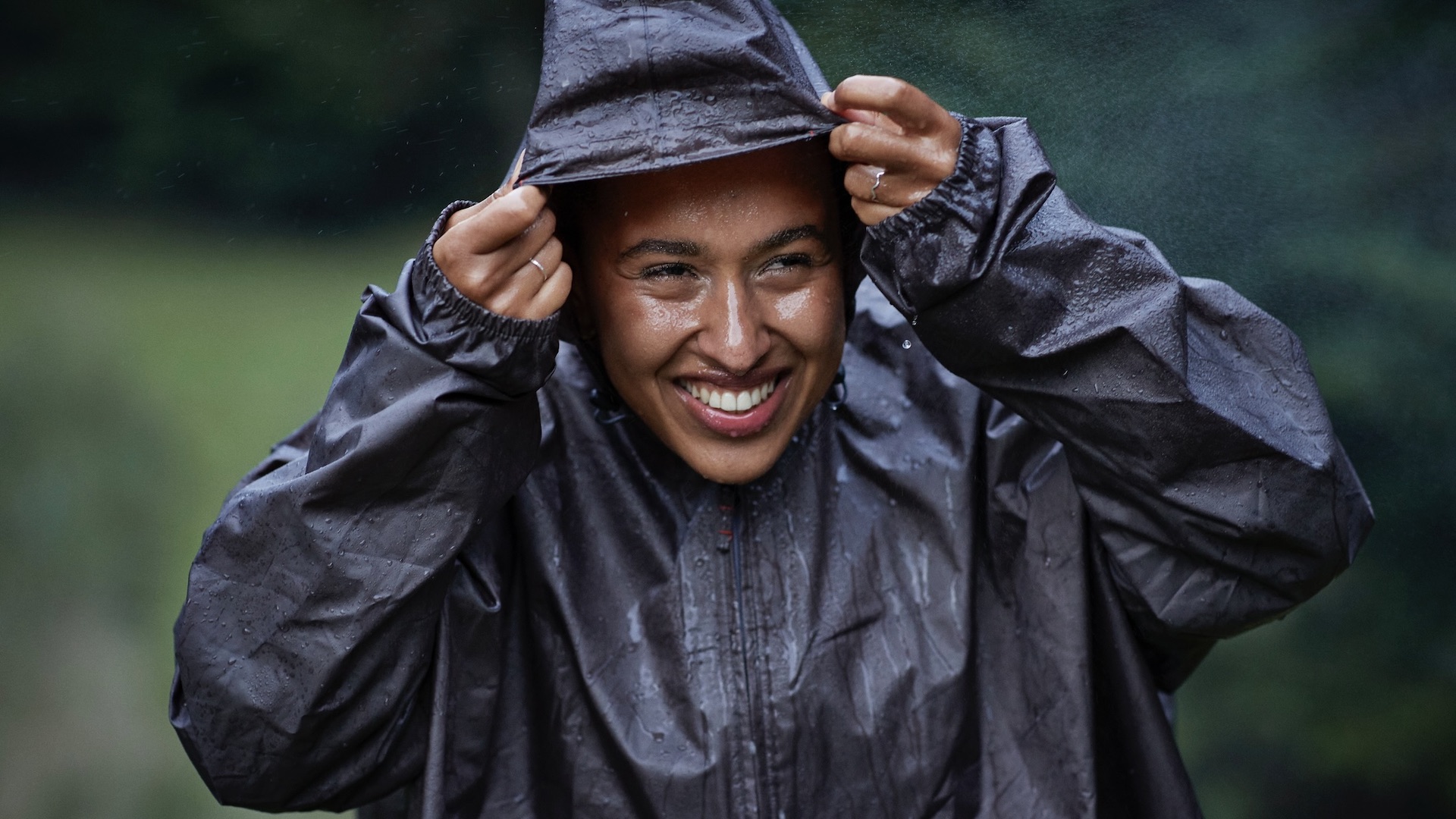
A waterproof jacket is an essential item of kit for many walkers and runners. Whatever your choice of activity, from dog walking, through trail running, to hikes in the hills and mountains, staying dry is vital for comfort and, in many cases, safety. But even a quick glance of the waterproof jacket – and waterproof trousers – rails in an outdoors shop could easily make you wince because the price for jackets can be hefty.
Many waterproof jacket brands boast of designs with Gore-Tex fabrics, or similar, DWR, breathability, peaked hoods, stormproof zips, waterproof security pockets and more. Maybe you do need all of these features for your type of walking or running, but maybe you do not.
We take a look at the details that you do need and others that you could most likely sacrifice if you are looking for a cheaper waterproof jacket.
At the time of writing, the price range of our selected best waterproof jackets for hiking is more than £500 to less than £100 and for waterproof the best lightweight running jackets, it’s a price range of around £240 to closer to £50, especially if you look for sale items.
What makes waterproof jackets so expensive?
There are many factors that dictate the cost of waterproof jackets. The fabric will be a major part of the overall price. Many brands use Gore-Tex, which is engineered to be both waterproof and breathable. Even within the Gore-Tex stable there is a price range of different fabrics for different activities.
Other brands have developed their own waterproof fabrics, such as eVent and Pertex, as alternatives to Gore-Tex.
The design of a jacket takes time and involves innovation. A newer jacket might be more expensive simply due to research and development. Likewise, a jacket that is developed to be more environmentally friendly and includes more eco-friendly products and manufacture processes may cost more.
In addition, some brands feel their reputation for quality can justify a higher price tag. Other reasons include the cost of a workforce, the price of other branded components such as YKK zips and distribution to retailers etc and you may find you often pay more for a lighter weight product, again due to R&D and specialised fabrics.
When you consider all of this, it’s worth thinking about how other companies can cut the cost of their products to be more budget friendly. For example, there are good reasons, such as the companies that develop their own waterproof fabrics rather than buying from Gore-Tex, or they buy alternative fabrics and components from other cheaper companies.

Do you even need an expensive waterproof jacket for your activities?
How much you decide to spend on a waterproof jacket for hiking or running will probably depend on what you plan to do and how frequently.
As a general rule, if you will be hiking in mostly fine summer weather and for short routes at lower altitude, you will not require a waterproof jacket that is highly specialised, such as one designed for winter use in the mountains.
As an example, it is likely that for short summer strolls your waterproof jacket will be a “just in case” item that will keep you dry in light rain or drizzle. The fabric required to keep out light rain can be lighter weight and water-resistant rather than highly waterproof.
Meanwhile, a waterproof jacket that needs to work hard in heavy rain and strong winds requires to be made of more robust, durable and waterproof fabrics and components. This fabric also needs to be highly breathable as well as waterproof because high energy activities, such as hiking hills and mountains, winter mountaineering and long-distance running make you sweat. The damp created by sweat needs to escape so breathability is important, otherwise you will end up wet inside the jacket.
Other details, including stiff peaked hoods, hoods that fit over climbing helmets, one-handed adjustable hems, velcro cuffs, storm proofed zips, waterproof security pockets and even designs to suit the male or female physique will all add cost to a jacket.
But if you are only planning to go for a casual walk or run and in locations and conditions that are likely to be mostly fine, or a mix of sunshine and rain, then you will not need a more expensive and highly designed jacket.
If you take a look at waterproof jackets aimed at winter mountaineers or hikers, or those made for ultra runners, you’ll see that there is a lot more detail and a greater requirement for these products to keep people dry for many hours and in tougher conditions.

Learn more about hydrostatic head and breathability
There are ratings awarded to waterproof fabrics that relate to how waterproof they are. This is called the hydrostatic head (HH). It's recommended you look for a minimum of 10,000mm HH for most activities, or at least 20,000mm for all-weather use. Likewise, there are ratings given to fabrics for breathability.
In addition, many jacket are treated with DWR (Durable Water Repellent). This is what is added to the outer of a jacket to provide extra water repellency. You will know the jacket has this if the water droplets roll off.
These are some of the most important factors to consider when choosing a waterproof jacket. If you will be outdoors in conditions that are likely to be wet for sustained periods, or you will be doing high energy activities that make you sweat, it is important that you pick a jacket with the highest HH rating you can afford.
The price is usually higher for a jacket that is more waterproof and has a higher breathability rating. If the fabric is also designed to be very lightweight, such as for runners, or it has been reinforced with extra fabric layers of with more durable areas, then the price will increase accordingly.
Likewise, if you will be using the jacket for occasional rainy spells or it will be sitting in your rucksack for the odd occasion when you are caught out in rain, then fabric doesn’t need to be so waterproof, nor will it require to be so breathable. In this way, you are likely to find a more budget friendly option.
Two jackets instead of one
In might be worth thinking about buying different jackets for different activities, or looking for one that aims to be versatile.
If you are a regular dog walker and also a keen Munro bagger, it’s probably a good idea to have two jackets, one to suit each activity. If you wear the mountain hiking jacket for frequent daily dog walks, the chances are you will wear it out and it will become dirty, which means a more expensive jacket needs to be replaced too quickly.
Wearing a cheaper waterproof jacket that will keep you dry for a short spell of rain while walking locally could be a good choice. Then you can reserve the more expensive waterproof jacket that will keep you dry for long and sustained periods of rain in more rugged conditions for the days when you head to the mountains.
Which brands can you recommend for budget waterproof jackets?
An entry-level and more affordable jacket in our selected best waterproof jackets for hiking review is the Adidas Terrex Multi RAIN.RDY waterproof jacket. It is priced at RRP £100 (you will most likely find it cheaper in various outlets) and described by our tester as “suitable for everyday wear, from town to trail – but more entry level in terms of technicality. Not for use on high, exposed hill and mountaintops in extreme conditions”.
Another more budget friendly waterproof hiking jacket is the Craghoppers Waverley Thermic Jacket that has an RRP of £160 but can be bought for as little as £75 in some retail outlets. This jacket includes insulation and is described by our reviewer as offering a “midlayer and an outer shell simultaneously for those times when conditions are both chilly and damp”. Although, on the downside the jacket is likely to be too warm when walking up hills; bulky compared to non-insulated hard shells; and heavy compared to most waterproof jackets.
Among the best women’s waterproof jackets we have selected, there are several that are more budget friendly, such as Craghoppers Atlas jacket, Marmot Precip Eco and Jack Wolfskin JWP Shell, which can all be sourced for around £100. It’s important to note that these jackets are better suited to conditions that are best described as warmer or summer weather and where walkers will not be facing torrential or sustained rain.
Rain pants also vary in price, from an RRP of £25.99 to £440. There are fewer features to differentiate waterproof over-trousers but it is worth choosing the right pair to suit the type of conditions you will be more likely to face. The price range is usually connected to the type of fabric and also details such as zipped hems and reinforced areas around the knees and butt.
The best waterproof running jackets that we have tested reveal a similar picture. A cheaper windproof and water-resistant jacket to check out is the Rab Vital Windshell Jacket that can be sourced for as little as £50. There is also a Evadict Waterproof Trail Running Jacket that Decathlon sell for a shave under £70.

So, is it worth buying budget waterproof jackets?
If it’s a more causal style of walking that you enjoy, then a budget waterproof jacket could serve you well.
These jackets will not be as robustly waterproof and so if you get caught in a sustained downpour for many hours you will need to be prepared to end up damp or wet.
There are some cheaper examples to consider such as those made by Craghoppers, Adidas, Jack Wolfskin and a some of the own-brand jackets for hiking and walking from Decathlon.
It could be that you consider more mid-range priced brands such as Berghaus, Mammut, Rab, adidas, Columbia, Marmot, The North Face.
However, most brands offer a range of different waterproof jacket for varying uses. Always aim to check the HH rating as well as breathability so you can balance cost with usefulness.
Also, another tip is to keep an eye on the sales and look for last season’s colours or models, or check out second-hand sales websites and charity shops for a bargain. If a jacket is discounted it could be that you get a more technical jacket for a cheaper price. But do read the reviews for waterproof jackets before buying to make sure it will perform well doing your chosen activity.
You could also sacrifice some technical details, such as the type of hem and cuff adjustors, pockets and the weight of the jacket as a compromise on cost.
Above all, though, it is important to buy a jacket that will keep you dry and, therefore, warm if you plan to be out on the trails for sustained periods or hiking or running in the hills and mountains. Getting wet and cold in rain is unpleasant at best and dangerous at worst.







